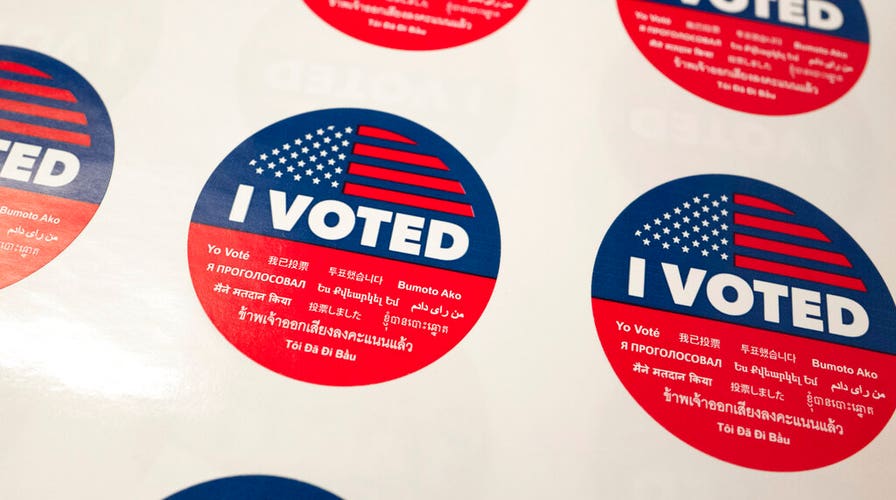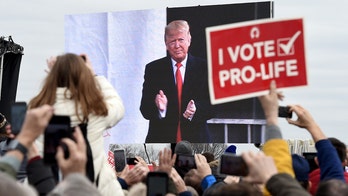Fox News Flash top headlines for Feb. 18
Fox News Flash top headlines are here. Check out what's clicking on Foxnews.com.
A North Carolina appeals court on Tuesday blocked the state’s voter identification law from going into effect, arguing it was a “discriminatory intent” to suppress black votes and should have been blocked months ago.
In its unanimous ruling, the three-judge Court of Appeals panel reversed a lower court’s July decision that refused to prevent implementation of the photo ID requirement approved by the Republican-controlled General Assembly. The law came after voters added an ID requirement to the state constitution in November 2018.

"I Voted" stickers wait for voters at a polling station inside the library at Robert F. Kennedy Elementary School in Los Angeles.
A majority of judges on the lower state court had declared that the plaintiffs failed to demonstrate they were likely to win at trial on claims that the December 2018 law designed to implement the amendment showed discriminatory intent against black voters.
Republican lawmakers said this law expanded the types of qualifying IDs and made it easier for registered voters without IDs to have their votes counted, making it very different from a 2013 voter ID law that federal courts previously overturned as discriminatory.
FLORIDA SEES CONFUSION A YEAR AFTER ALLOWING CONVICTED FELONS TO VOTE
U.S. District Judge Loretta Biggs wrote a similar opinion on Dec. 31, saying the new voter ID rules appear to contain the racially discriminatory taint of the 2013 law. The federal plaintiffs say the new law violates the U.S. Voting Rights Act and Constitution.
The Southern Coalition for Social Justice, whose lawyers are helping represent the voters in the state case, have said both injunctions are important in case one is overturned.
Lawyers for the state of North Carolina are appealing the federal ruling to the 4th U.S. Circuit Court of Appeals. Republican legislative leaders have not said whether they'll also appeal the state ruling.
CLICK HERE TO GET THE FOX NEWS APP
The members of Tuesday's panel — Judges Toby Hampson, Allegra Collins and John Arrowood — are all registered Democrats but aren't on the 2020 ballot. Six of the seven state Supreme Court justices are registered Democrats. Three of those seven seats are up for election in the fall.
The Associated Press contributed to this report.





